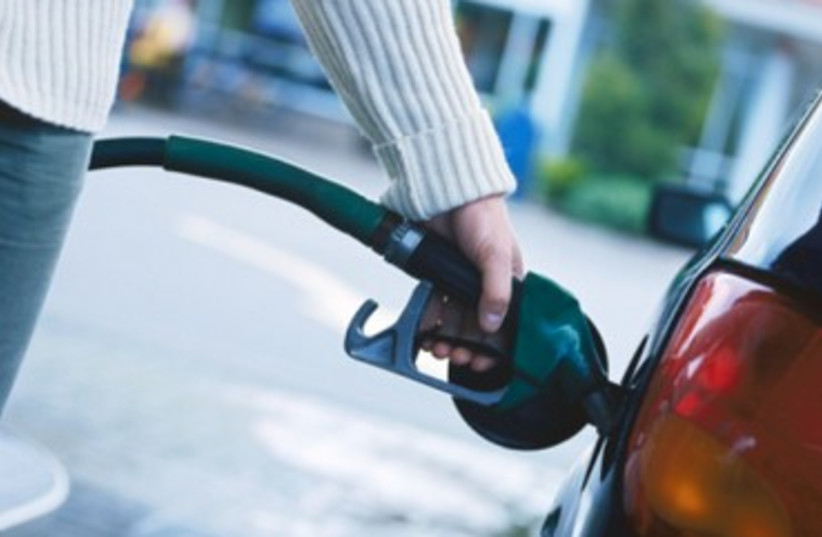If you own a car, buckle up. Then unbuckle yourself and take the bus instead. As of June 1, the price of gas is going up yet again, from NIS 7.06 to NIS 7.72 per liter. This is the latest in a series of fuel-price hikes that are at best annoying and at worst financially devastating.
Drivers filling up at a local gas station on Monday were, to put it kindly, not in a great mood. Those who pumped their own gas either declined to comment or simply stared glassy-eyed at the readout showing them how much of their hard-earned money they were funneling into their vehicles.
Overall, there was a very present sense of irritation, although that might just be routine for an average gas station during rush hour.
“It’s crazy,” said one driver who was pumping fuel. “It’s insane. Look at how much I’m spending here.” Our interview was cut short by the driver’s child, who proudly announced through an open window that he had peed in his car seat.
“It’s really extreme,” said one customer. “Though for us it’s less of an issue because we usually drive an electric car.” There was a tangible air of cognitive dissonance at the pump as he poured 95-grade octane into a 4x4 SUV that he said was “just for trips.”

Taxi drivers
As well as standard commuters, one of the primary groups of people affected by the upward shift in cost is taxi drivers. "They keep raising prices. I have a family, kids – everything just keeps getting harder and harder," said Yossi, a Tel Aviv cab driver, while squinting a sad look into the rearview mirror (and completely ignoring the road: an expert cabbie technique). “What will I do? I don't know – I don't have anything else.”
"They keep raising prices. I have a family, kids - everything just keeps getting harder and harder."
Yossi
As a taxi driver, Yossi pays full price for gas, with no subsidies from his employer. In doing a job that requires constant driving, he needs to fill his tank two to three times a week. "I used to spend 200 on a tank of gas. Now I spend close to 400," he said. That extra strain is making life for him, and others in his position, much more challenging. "It's a big percentage of my paycheck, gone."
One might speculate that the endlessly increasing costs of gas could lead to a strike from consumers, like what Israel saw in the 2011 cottage cheese crisis. Yossi thinks that there’s no chance in this case, as "We're talking about every driver in the whole country," not just a bunch of consumers who like clumpy cheese. The latter can deal with giving up their favorite dairy product for a while, but giving up on your primary transportation method until the government decides to intervene is a lot tougher.
There is a question regarding how the gasoline drama will impact the nation's leadership – particularly Finance Minister Avigdor Liberman. If gas prices continue to skyrocket, it isn't outlandish to predict a pretty negative outcome for Liberman's image as the minister in charge of protecting Israeli wallets.
Yossi has adopted a one-size-fits-all approach. “They don't care about us," he said. “It doesn’t matter who’s in the government: Bibi, Shmibi, Likud, Maarav – everyone’s just covering their own ass.”
The continually rising price of gas can be traced back to the onset of the war in Ukraine, a catalyst event that set off a staggering chain of world-economy dominos that, if we keep the metaphor, seems to have been lined up by a very dedicated and accurate nine-year-old.
International sanctions levied against Russia in response to its aggression and war-mongering have put a major strain on the oil market, as the former Soviet nation is one of Europe's primary oil exporters. In turn, the price of gasoline everywhere ballooned; and though in many nations, gas prices have been regulated somewhat, the price in Israel has remained unfortunately high – especially now that global oil prices have shot up once more (May saw a 20% rise in world markets).
Whether or not Israel will be able to get a handle on its fuel problem soon remains to be seen, but one thing is for sure: You should go fill up your gas tank before June.
